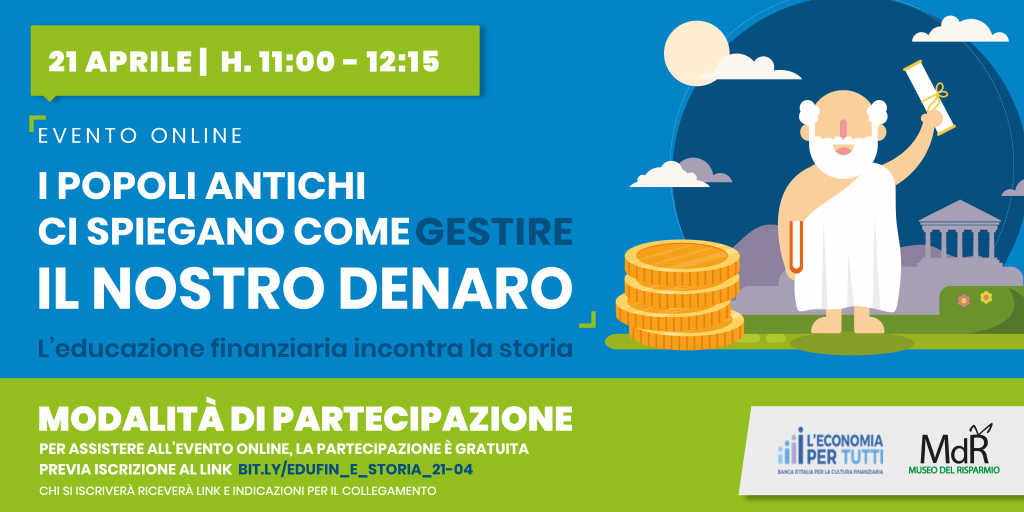
Did you know that finance was born in Mesopotamia more or less between 3,000 and 2,500 b.C?
That the average Athenian man living during the fourth century b.C. had a high level of financial literacy?
And did you know that in ancient Greece oxen were used as a unit of account?
Financial education meets history
Economics and finance are not inventions of modern man, but have roots in the most ancient cultures.
On 21 April, 11 am – 12.15 pm, the Museum of Saving and the Bank of Italy offer students and teachers from high schools the opportunity to look at the historical and literary references studied in the classroom from a different perspective: an economic look at the facts of the past in order to learn some basic concepts of good money management.
A virtual journey to distant times that will offer a different interpretation to also learn the economy of the present.
PROGRAM
11.00 am – 11.10 am Why know and understand how to manage resources
Giovanna Paladino, Director and Curator of the Museum of Saving
11.10 am – 11.20- am The role of money in the development of civilization
Video interview with Gianni Toniolo, historian, economist and university professor
11.20 am – 12.00 pm From commodity money to bank deposits: among the Sumerians, Homer, Pericles, Ovid and other characters in history
Riccardo De Bonis, Head of the Financial Education Service of the Bank of Italy
12.00 pm – 12.15 pm Q&A and conclusions
HOW TO PARTICIPATE
Participation is free upon registration at https://bit.ly/edufin_e_storia_21-04
Those who register will receive links and indications for the connection.
Couldn’t you follow the event? REVIEW IT HERE
tags: Ancient peoples tell us how to manage our money
